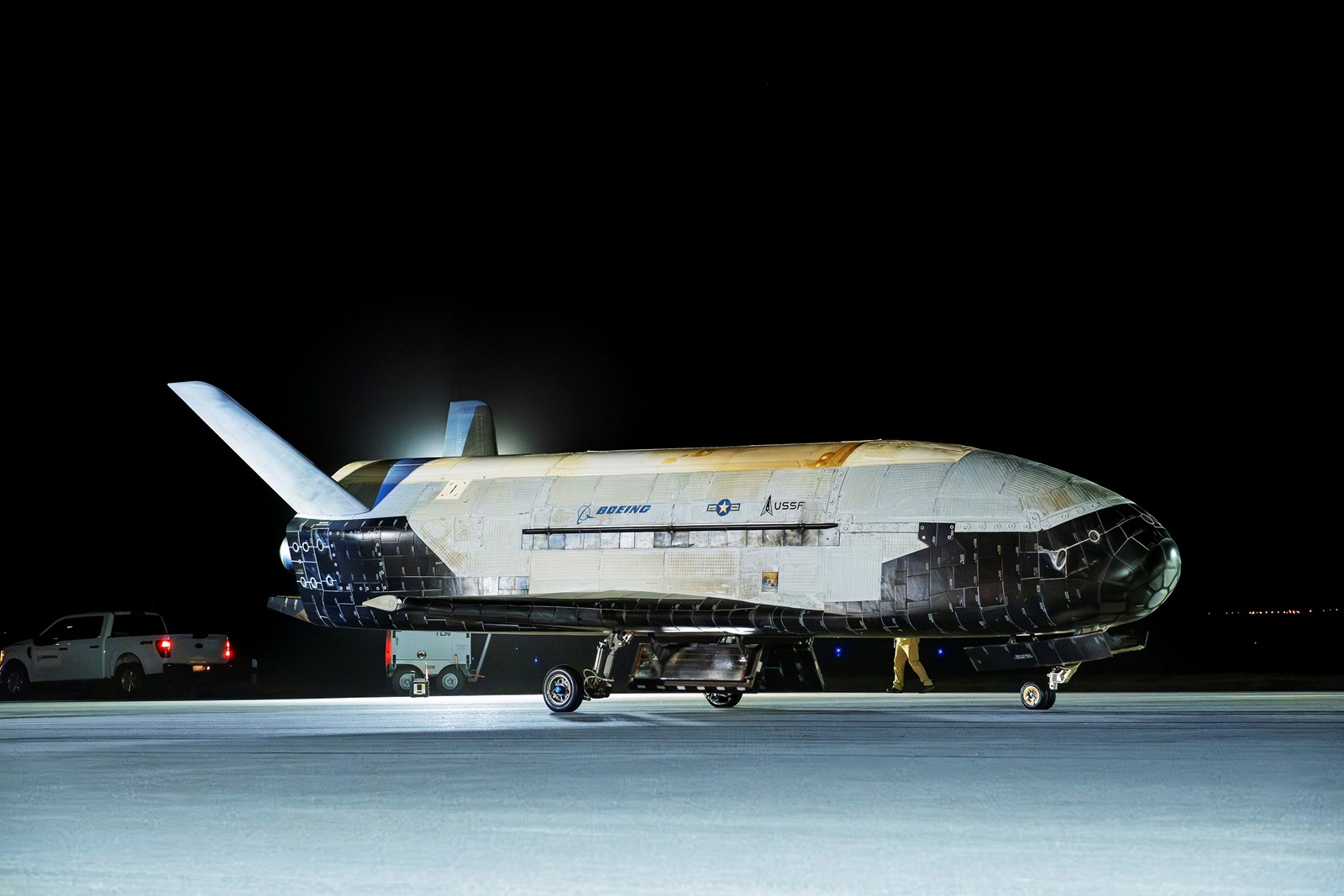In the 21st century, space will be the new battlefield

The X-37B Orbital Test Vehicle-7 (OTV-7), the U.S. Space Force's dynamic unmanned spaceplane, successfully deorbited and landed at Vandenberg Space Force Base on March 7. United States Space Force via AP
By DAVID KLEPPER | THE ASSOCIATED PRESS
WASHINGTON -As Russia held its Victory Day parade this year, hackers backing the Kremlin hijacked an orbiting satellite that provides television service to Ukraine.
Instead of normal programing, Ukrainian viewers saw parade footage beamed in from Moscow: waves of tanks, soldiers and weaponry. The message was meant to intimidate and was an illustration that 21st-century war is waged not just on land, sea and air but also in cyberspace and the reaches of outer space.
Disabling a satellite could deal a devastating blow without one bullet, and it can be done by targeting the satellite's security software or disrupting its ability to send or receive signals from Earth.
"If you can impede a satellite's ability to communicate, you can cause a significant disruption," said Tom Pace, CEO of NetRise, a cybersecurity firm focused on protecting supply chains.
"Think about GPS," said Pace, who served in the Marines before working on cyber issues at the Department of Energy. "Imagine if a population lost that and the confusion it would cause."
More than 12,000 operating satellites now orbit the planet, playing a critical role not just in broadcast communications but also in military operations, navigation systems like GPS, intelligence gathering and economic supply chains. They are also key to early launch detection efforts, which can warn of approaching missiles.
That makes them a significant national securityvulnerability, and a prime target for anyone looking to undermine an adversary's economy or military readiness - or deliver a psychological blow like the hackers supporting Russia did when they hijacked television signals to Ukraine.
Hackers typically look for the weakest link in the software or hardware that supports a satellite or controls its communications with Earth. The actual orbiting device may be secure, but if it's running on outdated software, it can be easily exploited.
As Russian forces invaded Ukraine in 2022, someone targeted Viasat, the U.S.-based satellite company used by Ukraine's government and military. The hack, which Kyiv blamed on Moscow, used malware to infect tens of thousands of modems, creating an outage affecting wide swaths of Europe.
National security officials say Russia is developing a nuclear, space-based weapon designed to take out virtually every satellite in low-Earth orbit at once. The weapon would combine a physical attack that would ripple outward, destroying more satellites, while the nuclear component is used to fry their electronics.
U.S. officials declassified information about the weapon after Rep. Mike Turner, R-Ohio, issued a public warning about the technology. Turner has pushed for the Department of Defense to provide a classified briefing to lawmakers on the weapon, which, if deployed, would violate an international treaty prohibiting weapons of mass destruction in space.
Turner said such a weapon could render low-Earth orbit unusable for satellites for as long as a year. If it were used, the effects would be devastating: potentially leaving the U.S. and its allies vulnerable to economic upheaval and even a nuclear attack.
Russia and China also would lose satellites, though they are believed to be less reliant on the same kinds of satellites as the U.S.
Turner compared the weapon, which is not yet ready for deployment, to Sputnik, the Russian satellite that launched the space age in 1957.
"If this anti-satellite nuclear weapon would be put in space, it would be the end of the space age," Turner said. "It should never be permitted to go into outer space. This is the Cuban Missile Crisis in space."
Valuable minerals and other materials found on the moon and in asteroids could lead to future conflicts as nations look to exploit new technologies and energy sources.
Acting NASAAdministrator Sean Duffy announced plans this month to send a small nuclear reactor to the moon, saying it's important the U.S. does so before China or Russia.
"We're in a race to the moon, in a race with China to the moon," Duffy said. "To have a base on the moon, we need energy and some of the key locations on the moon We want to get there first and claim that for America."
